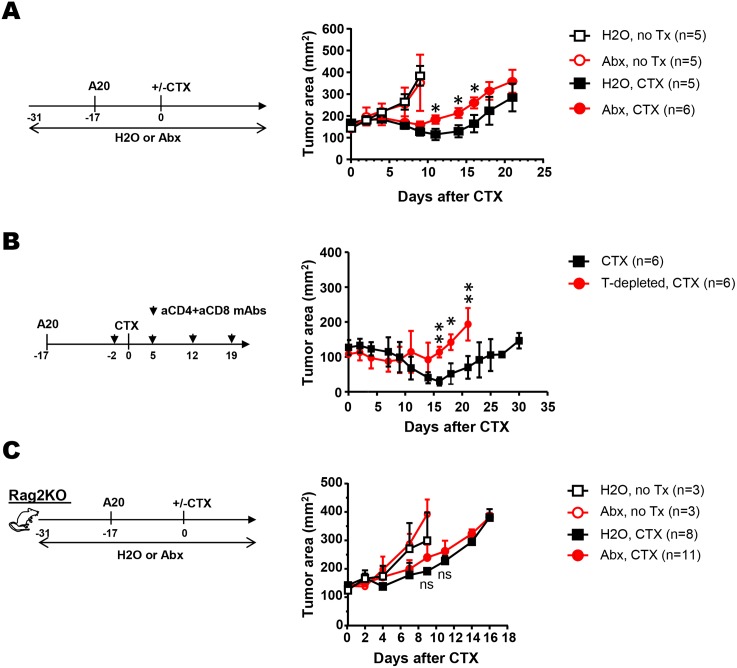Figure 1. Antibiotics administration diminishes the efficacy of CTX in mice with B-cell lymphoma by attenuating CTX-elicited antitumor T cell responses.
(A) Antibiotics administration diminishes the efficacy of CTX in mice with B-cell lymphoma. The schema depicts the timeline of experimental procedures. Normal drinking water (H2O) or antibiotics-containing water (Abx) was provided to mice 2 weeks before tumor inoculation, and maintained for the duration of the experiment. A20 tumor cells were subcutaneously injected to mice on the flank. When tumor sizes reached ∼130mm2, mice were either left untreated (no Tx) or received CTX injection. Tumor growth curves under each condition are shown as tumor area ± SEM. Number of mice under each condition is provided. (B) Depletion of endogenous T cells impairs the antitumor effect of CTX. Mice with established A20 tumors were treated with CTX. Half of the mice received monoclonal antibodies to deplete CD4+ and CD8+ T cells before and after CTX treatment. Tumor growth curves are shown as tumor area ± SEM. (C) Antibiotics administration does not alter tumor growth rates in Rag2KO mice. Rag2KO mice were subject to the same experimental procedures describe in Figure 1A. Tumor growth curves are shown as tumor area ± SEM. ns, not significant; *, p<0.05; **, p<0.01.

